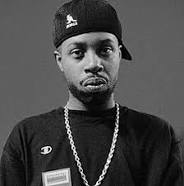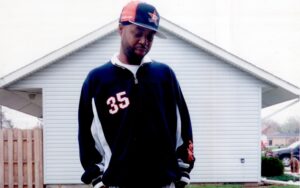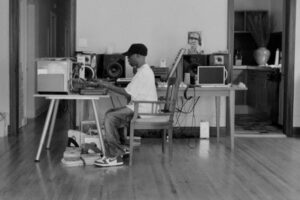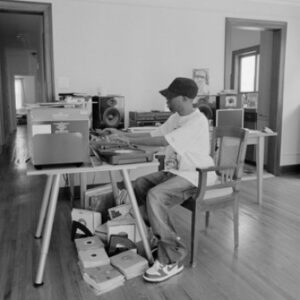
J Dilla
J Dilla grew up in a home filled with music in Detroit’s historic Conant Gardens neighborhood. Dilla’s father, a jazz pianist named Dewitt Yancey loved to sit on the porch of 3103 Nevada. His mother (“Ma Dukes”) was also an opera singer, but he was educated in Detroit funk by Amp Fiddler who toured on keyboard with George Clinton’s P-Funk group for 10 years. “I wish I had photographed the sessions,” Amp recalls of his basement where he taught a young James Yancey how to sample with an MPC. “In my mind I was just helping some kids because I thought they were talented.” Long winters and large basements were one of the factors to Detroit’s musical legacy…”
The Basement
While J Dilla, Slum Village, Proof and many other up and coming hip hop artists and groups honed their skills at Maurice Maloney’s, now legendary, Hip Hop Shop where it’s weekly cyphers were a public proving ground for up-and-coming rappers. But it was in the basement studio of this house — from about 1992 to 1997 — where Dilla defined his style and conjured up the magical alchemy that gave birth to his revolutionary approach to hip-hop production. Slum Village, Common, Pete Rock, Q-Tip and Tribe Called Quest, D’Angelo, Jazzy Jeff, Dwele and Erykah Badu are just some of the heavy hitters who spent time in that basement.
“…I miss that basement. That basement is the birthplace of so many musical ideas. That was the center for the Detroit movement in hip hop.” – DJ House Shoes
Emerging on the national scene in the mid-90s, J Dilla aka “Jay Dee” perfected jazz loop abstractions, and an innovative electronic, yet soulful production style that made him a top prospect in the industry. The underground took notice, and he was quickly tapped to produce for the likes of A Tribe Called Quest, Janet Jackson and The Pharcyde. He joined The Ummah production team with Q-Tip & Ali Shaheed Muhammad, and soon the kid from Detroit was starting to be recognized as a major player in hip-hop.
 Dilla then went on to create with the Soulquarians a neo soul and alternative hip hop-informed musical collective. The collective, formed during the late 1990s, continued into the early 2000s, and produced several well-received albums. Prior to its formation, members Common, Talib Kweli, Mos Def, and Q-Tip were members of the Native Tongues Posse.
Dilla then went on to create with the Soulquarians a neo soul and alternative hip hop-informed musical collective. The collective, formed during the late 1990s, continued into the early 2000s, and produced several well-received albums. Prior to its formation, members Common, Talib Kweli, Mos Def, and Q-Tip were members of the Native Tongues Posse.
His friend and fellow producer Ahmir “Questlove” Thompson of hip hop band The Roots saw something different in his style and daughter him out to work with him on several of the collective’s projects. In an interview for Spin magazine, Common discussed the team’s production of those albums, stating “It was one of those time period that you don’t even realize when you’re going through it that it’s powerful”.
Erykah Badu on the song “Didn’t Cha Know“: “I went to Detroit to work with this cat that I heard a few tracks from that drove me crazy. Common took me over there, we went down to the basement, Common left and Dilla and I sat and talked. He had records wall-to-wall like it was a public library and he goes, ‘OK, I want you to look for a record.’ I’m leaking through these organized, tightly packed crates, and I just pulled out one record and the artist was Tarika Blue. I liked that name. I put on the first track (‘Dreamflower’) and I fell in love with the song and I kept playing it over and over again and I said, ‘I want this.’ He showed me how to loop a small part of the bassline, he was very generous in teaching you and letting you be hands on. Then I left the room and when I came back he had looped some drums to a small sample of the song and I started to write to it. I came up with the Ooooh, heeeey melody. I wrote for a few days and then the song came to be. My songs sound different from everyone else’s Dilla songs. The sound is a little bit more bass heavy and the frequencies are definitely different than most of the songs he does, because it’s his world. But when he allowed me to come into his world, it became another kind of world. I think he allowed everybody that kind of space and that kind of freedom because he was so super creative that he would go onto something else while we learned the first part.”
Ultimately, he created chart topping singles that defined the careers of artists like; The Roots, Mos Def, Talib Kweli, Janet Jackson, Frank N’ Dank, Busta Rhymes, & many others, as well as, genre redefining solo releases. J Dilla’s work touched the world, and forever left a mark on history and popular music.. He is largely credited with creating the genre known as “Neo-Soul”. Here is a video that explores his revolutionary work with the MPC3000:
Learn more about beat programming, Detroit music history and check out our other educational resources in Detroit Techno 101.
James Yancey was the oldest of four children including a sister and two brothers, Earl and John, who later began doing music as Illa J.
Early Life
The family lived at a corner house near McDougall and Nevada, on the east side of Detroit. He developed a vast musical knowledge from his parents. According to his mother, he could “match pitch perfect harmony” by “two-months old”, to the amazement of musician friends and relatives. He began collecting vinyl at the age of two and would be allowed to spin records in the park, an activity he enjoyed tremendously as a child.
 Along with a wide range of musical genres, Yancey developed a passion for hip hop music. After transferring from Davis Aerospace Technical High School to Detroit Pershing High School, he met classmates T3 and Baatin, and became friends with them through mutual love of rap battles. The three formed a rap group called Slum Village. He also took up beatmaking using a simple tapedeck as the center of his studio. During these teenage years he “stayed in the basement alone” with his ever-growing collection of records, perfecting his craft. He later told Pete Rock when they met years later that “I was trying to be you.”
Along with a wide range of musical genres, Yancey developed a passion for hip hop music. After transferring from Davis Aerospace Technical High School to Detroit Pershing High School, he met classmates T3 and Baatin, and became friends with them through mutual love of rap battles. The three formed a rap group called Slum Village. He also took up beatmaking using a simple tapedeck as the center of his studio. During these teenage years he “stayed in the basement alone” with his ever-growing collection of records, perfecting his craft. He later told Pete Rock when they met years later that “I was trying to be you.”
Early Career
In 1992, he met experienced Detroit musician Amp Fiddler, who was impressed by what Jay Dee was able to accomplish with such limited tools. Amp Fiddler taught him the basics and let J Dilla use his MPC, which he mastered quickly. He also met DJ Dez aka Dez Andrés hanging out in Amp’s studio. In 1995, J Dilla and MC Phat Kat formed 1st Down, and would be the first Detroit hip hop group to sign with a major label (Payday Records) – a deal that was ended after one single when the label folded. That same year he recorded ‘Yester Years EP’ with 5 Elementz (a group consisting of Proof, Thyme and Mudd). In the year 1996, he formed the group Slum Village along with T3, Baatin, and DJ Dez and recorded the group’s debut, Fan-Tas-Tic (Vol. 1) in his home studio, and later at RJ Rice Studios. Upon its release in 1997, the album quickly became popular with fans of Detroit hip hop, as well as gaining the attention of Q-Tip, who hailed the group as successors to A Tribe Called Quest. However, J Dilla felt uncomfortable with the comparison and often voiced it in several interviews.
 J Dilla died on February 10, 2006, three days after his 32nd birthday and the release of his final album Donuts, at home in Los Angeles, California. According to his mother, Maureen Yancey (Ma Dukes), the cause was cardiac arrest. J Dilla was survived by two daughters. In May 2006, J Dilla’s mother announced the creation of the J Dilla Foundation, which will work to cure people affected by lupus.
J Dilla died on February 10, 2006, three days after his 32nd birthday and the release of his final album Donuts, at home in Los Angeles, California. According to his mother, Maureen Yancey (Ma Dukes), the cause was cardiac arrest. J Dilla was survived by two daughters. In May 2006, J Dilla’s mother announced the creation of the J Dilla Foundation, which will work to cure people affected by lupus.
J DILLA FOUNDATION was also setup to ensure his musical legacy is at the forefront of providing music education for youth.
Dilla’s death has had a significant impact on the hip-hop community. Besides countless tribute tracks and concerts, Dilla’s death created a wealth of interest in his remaining catalog and, consequently, Dilla’s influence on hip-hop production became more apparent.
James Dewitt “J DILLA” Yancey’s legacy is celebrated in over 20 major cities worldwide during the month of February commemorating his birth & death (February 7, 1972 – February 10, 2006).
